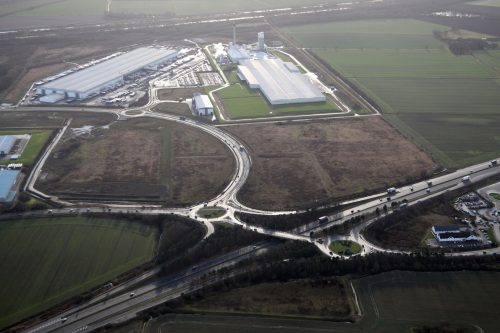Northern ports prepared for increase in freight amid Brexit fears

Goole port’s growth potential could be ‘unlocked’ through increase in freight caused by shipping companies seek alternatives to Dover amid fears of Brexit, bosses have said.
Uncertainty over the UK’s future trade relationship with the EU has reportedly left widespread concern that there will be delays at Dover as the main sea links with the Continent are disrupted.
According to government figures analysed by consultancy PRB Associates, in 2017 Dover and the Channel tunnel handled half the freight shipped by container and truck from the so-called “short sea market”, an arc from Denmark to Portugal.
That was 4.2m units, with 2.6m through Dover and 1.6m through the tunnel.
Stephen Silvester, inward investment manager of East Riding of Yorkshire Council, said: “As evidenced by ABP’s recent investments in container infrastructure, the Humber Ports are already thriving and have the capacity to handle more trade post Brexit.
“The Port of Goole as the gateway to the Humber and the start of the ‘Energy Estuary’, is particularly well equipped to support this growth due its inland position, proximity to the main motorway network and oven ready employment land such as Capitol Park which has Enterprise Zone status”.
Mike Heydecke, director of Yorkshire developers Sterling Capitol, believes any increased traffic at Goole will have a positive knock-on effect on the town and surrounding area.
Heydecke said: “Capitol Park Goole, by Junction 36 on the M62, is perfectly positioned to take advantage of any increased activity in the port of Goole. The park has been opened up by a new link road from the motorway to the port and has massive economic potential. This potential is now ready to be unlocked.”
Peter Baker of PRB Associates, said any shift from Dover could be accommodated easily because there was spare capacity on routes across the North Sea. He has calculated that as much as a fifth of container trade from Dover and the Channel tunnel could move to alternative crossings.
Around 90% of containers from deep-sea crossings enter the UK through the south, but more than half of that cargo is destined for places north of Birmingham.








